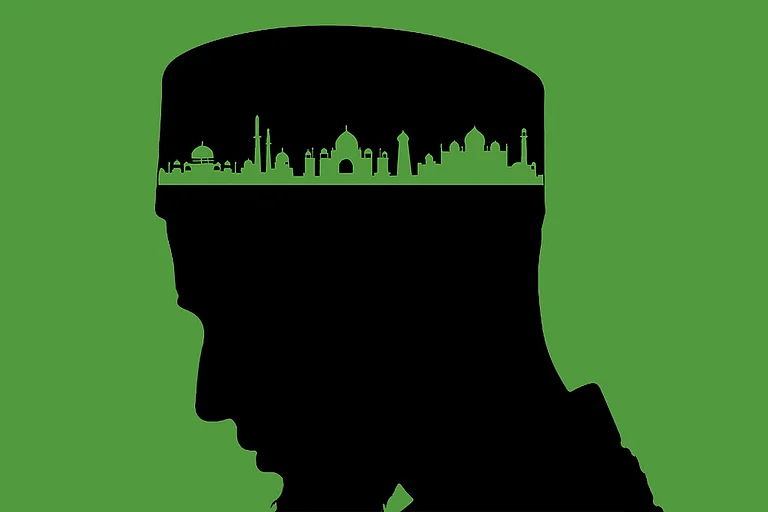The concept and practices of auqaf (the plural of waqf) are 1,400 years old. Its genesis lies in the times of the Prophet Muhammad (PBUH) or even earlier. Waqf derives its name from the Arabic word ‘waqufa’, meaning to hold, detain, or tie up.
Authenticated sources trace the story to the Caliph of Islam, Hazrat Umar (RA), requesting the Prophet of Islam (PBUH) to advise him on making pious use of a piece of land having links with Khyber in its vicinity. The Prophet advised him to make use of the land by way of charity for the poor and the underprivileged and affirmed that this piece of land shall not, under any circumstances, be sold, bought, gifted, inherited, or disposed of.
Thereby originated the concept of waqf, and over time, it clearly crystallised into the idea of the ownership and proprietorship of none other than Allah himself of the waqf properties—lands, immovable or movable. The mere mortals, in the name of mutawallis, were the custodians of the waqf property—never its owners.
On the management and the administrative side, the government of the day legislated and formulated different Waqf Acts—1913, 1924, 1954, 1995, 2013 (amendments of the Act), and finally 2025 (amendment of the Act).
The Waqf Act, over time, has conceptually brought forth the following factors, albeit in a progressive or declining manner: The Indian Parliament reserves the prerogative of legislation on waqf properties, its administration, superintendence, and resources—revenue from the properties, rent, etc., and in certain financial exigencies, grants from the government. Waqf Boards in the States/UTs were created and made functional by the State governments. Their structures were created; their functionality defined; their finances (revenues), grants, and subsequent audits and assessments devised. The Waqf Act also defined the roles and responsibilities of the Central Waqf Council—the advisory secretariat on waqf matters to the Government of India. It acts as the link between the State Waqf Boards and the Central Government (read Ministry of Minority Affairs). The serious issue of encroachment on waqf properties and lands, and the illegal and unscrupulous sale of waqf lands by heinous and dishonest custodians—mutawallis and Waqf Boards—were attempted to be addressed emphatically by empowering reasonably senior CEOs and Waqf Boards in consultation with the district collector. Finally, in 2013 (amendments), the Waqf Tribunals were created to identify and fast-track serious problems of encroachments on waqf lands, supplementing the District and High Courts.
But all these noble intentions and legislative measures failed to reach the grassroots/cutting-edge level of the State Waqf Boards or the Central Waqf Council. The problem multiplied, corruption galore, and the very purpose of dedicating waqf properties by the waqif was defeated in spite of all these activities. Hence, the 1995 Waqf Act was suitably and agreeably amended in 2013 with some far-reaching measures: Waqf properties/land, under no circumstances, could be sold, gifted, or mortgaged. Rents at market rates were mandatorily considered for leased properties, and Waqf Tribunals were created to lessen the burden of the District Courts and High Courts in waqf cases. Chartered accountants, advocates, and women were incorporated into the Waqf Boards.
The 2025 amendment to the Waqf Act, 1995, has somersaulted all these provisions by way of restricting the Waqf administration as practised by the State Boards and the Central Waqf Council. The State Government officer—DM/DC—has been made the final administrator or arbiter in waqf matters, not the CEO or the Waqf Board. Non-Muslim members have been introduced or inducted into the Central Waqf Council/State Waqf Boards. The CEO need not be a Muslim officer. The cognisable offence has been made non-cognisable in matters of illegal encroachments/buying/selling of waqf properties, etc. (punishable with simple imprisonment, not rigorous). The powers of the Waqf Tribunals, failing in deciding major cases, have been apparently curtailed. The limitation clause (in claiming waqf properties) has been brought back, and the waqf by user practice and denouement are poised on a cliffhanger. All these have been done under the declared intentions of facilitating and spreading waqf outreach to the marginalised, albeit under a strong majoritarian twist with very powerful narratives. Only time will tell whether these measures will bear fruit.
(Views expressed are personal)
Dr. Syed Mahmood Akhter is a former IRS officer with over 35 years of service. His career spans teaching and key roles in the Ministry of Minority Affairs, where he contributed to the Wakf Act amendments & minority welfare
This article is part of 바카라라이브 바카라 May 01, 2025 issue 'Username Waqf' which looks at the Waqf Amendment Act of 2025, its implications, and how it is perceived by the Muslim community. It appeared in print as 'Excessive Reform'

















